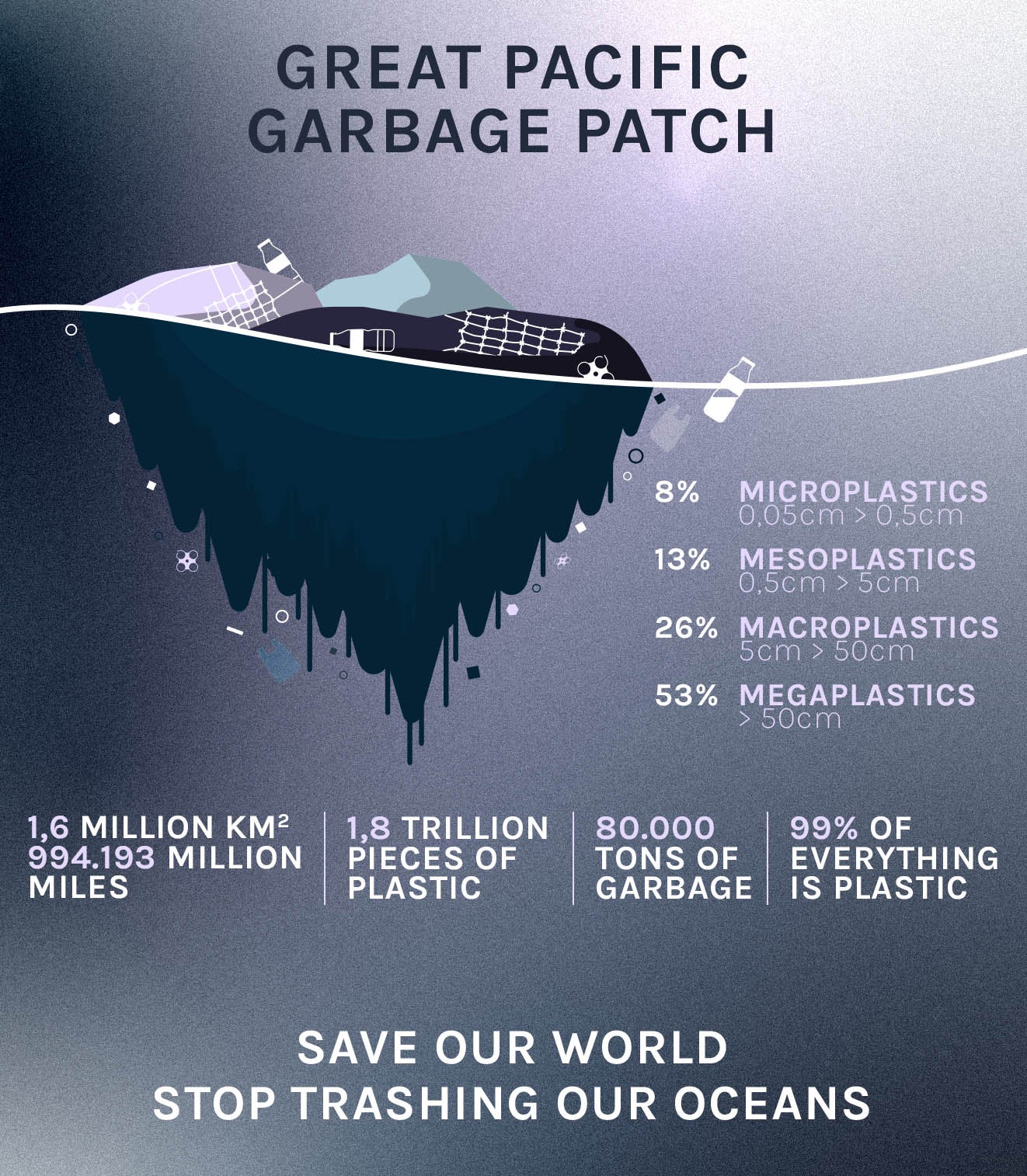
Join Our Plastic Free July Challenge
Share
We challenge you to stop using plastic for one week
We’ve talked about plastic pollution in our oceans in the first blog entry, what marine debris consists of and where it comes from. In this week’s blog post, we’re having a closer look at where it goes. Does plastic that ends up in our oceans actually go anywhere? Plastic debris floating in our oceans is collected by ocean currents, trapped in whirlpools, forming what is referred to as garbage patches.

Today, there are several of these gigantic plastic islands in our planet’s seas. When speaking about ocean plastic patches, people usually refer to 5 major garbage accumulations: Two in the Pacific, two in the Atlantic, and one in the Indian Ocean. Just like an iceberg, the floating plastic only shows about 15% of the amount, hiding 85% under water.
Once stuck in a garbage patch, or elsewhere, the abandoned plastic stays in our oceans for an insane amount of time, and looking at the numbers is shocking again and again. The World Economic Forum (WEF) predicts that, by 2050, the oceans could contain more tonnes of plastic than fish.
Ending the plastic in our oceans is as urgent a task as it is difficult to tackle. To make it a bit easier for you to start, I’ve linked another article that shows easy ways to avoid single-use plastics below.
I am curious: What is your hardest challenge when trying to not use single-use plastic? Tell me about it in the comment section!
Don’t forget to sign up for our challenge below, as we’re donating €1 to Sustainable Coastlines Hawaii, an environmental protection organization based in Hawaii, for everyone joining our challenge. Together we can make a difference and greet tomorrow with “Aloha”.
Lauri
You can register for our challenge here:
https://purelei.com/pages/purelei-aloha-challenge
I look forward to seeing you!

